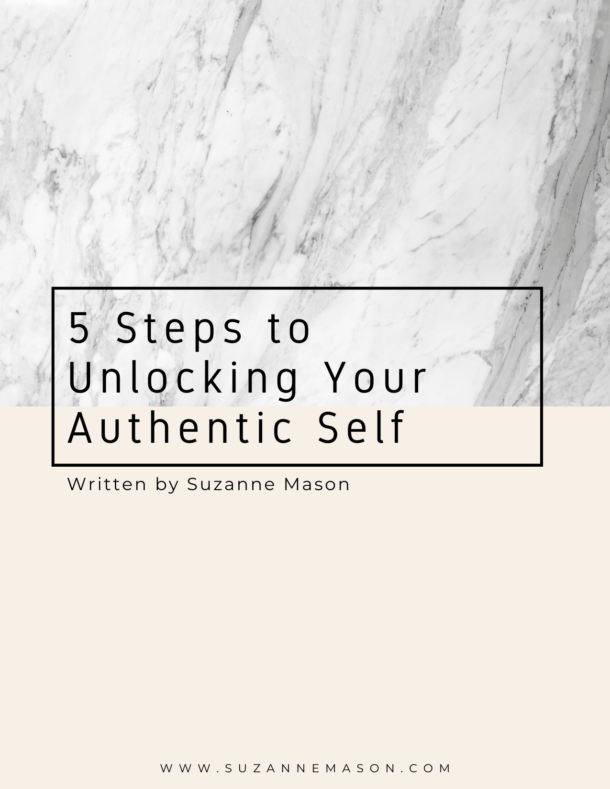Developing Our Internal Locus of Control
Written by Suzanne Mason
When you think about your life, do you think of it as being under your control or do you think that no matter what you do, it won’t make any difference?
Often, when we look at people who are successful, we think of them as lucky. Yet, most of them have achieved their successes in life by being pro-active about their intentions and putting in a lot more effort than the average person who only talks about being successful. Most importantly, successful people often believe that their life is up to them to create, and they do not simply accept that they were dealt the unlucky hand and so should just roll over and put up with it. They own who they are. This belief is also known as having an internal locus of control.
When we have an internal locus of control, we believe that our life and circumstances are within our control, that we have the power to change our lives. When we have an external locus of control, we believe that what happens in our lives are decided by external means such as luck, fate, and socio-economic factors.
Breaking the chain
It is said that when elephants in captivity were little, they were chained to a post with a thin chain to ensure that they don’t run away. As the years pass, the elephants grew bigger and stronger and yet the same thin chain holds them in place. They don’t try to break free even though they physically can. Psychologically though, they can’t. They are held in place by learned helplessness which means that they have learned over time that there is no point in trying to break the chain or run as that will not change things.
As humans, some of us have the same mindset. When we have challenges in life, we blame our fate, our poor luck. Sometimes, when we have this kind of mindset, we stop trying because, what’s the point? When we have a mindset like this, it can stop us from moving forward and even trying, which means that we have failed even before we get started. However, when we develop a different mindset, one where we have control over our circumstances, we can change our life too.
How to build our internal locus of control
Growth mindset
To cultivate an internal locus of control, we need to adopt a few new perspectives. Firstly, we need to have a growth mindset which is having the view that our abilities and intelligence can be learned and developed. This means that we can work on acquiring the skills we need, and we can also increase our intelligence by increasing the information and knowledge we have on certain subjects. In contrast, a fixed mindset is having the perspective that our intelligence is fixed and that we are stuck with our current level of abilities. This means that we stop taking risks in terms of going after our goals or even trying to improve our lives.
Believe in yourself
Another perspective we need to increase our internal locus of control is to build on our self-efficacy. According to the psychologist Albert Bandura, self-efficacy is the belief that we have in our ability to achieve a goal and to successfully complete a task. In your own life for example, when you believed that you could do something, weren’t you more enthusiastic about it and didn’t you then put in more effort? When we have an internal locus of control, firstly, we already believe that we are in control of our lives. Naturally, believing that we are capable of achieving our goals helps provide us with a sense that we have control over our lives.
Learn to be optimistic
Lastly, to counteract against learned helplessness, we can learn to develop learned optimism instead. According to Martin Seligman, the founding father of positive psychology, we can develop learned optimism through the 3Ps: Permanence, pervasiveness and personalisation. With permanence, we should view our current challenges or less-than-ideal situations as temporary and not permanent. In terms of pervasiveness, we should regard our setbacks as part of the situation and not our perpetual failing. With personalisation, we should avoid blaming ourselves too harshly or make it too personal such as blaming our failures on our “stupidity”. By encouraging optimism instead of helplessness, we can start to shift our locus of control to ourselves rather than external sources.
Sometimes things are out of our control
Having an internal locus of control is associated with many positive effects such as being healthier, increased motivation and increased resilience in handling life’s challenges. However, we should recognise that not everything is within our control. For example, when we have huge goals in life, we think that everything will go as planned. However, most successes in life don’t often materialise exactly to plan, because there are other factors other than our own hard work that can influence many outcomes in life.
You may think that promotions should rightfully go your way since you have worked hard, but it may not. You may think that your marriage should be successful simply because you have done your part but sometimes it doesn’t. What you can do in these situations is acknowledge that some things are outside your range of control. However, when you have a firm internal locus of control, it means that you can pick yourself back up because how you overcome challenges is exactly within your control.
A quick question for you to ponder: Do you think you have an internal or external locus of control? How has it impacted your life?
Want to know who you truly are?
Sign up now for a free ebook to unlock your authentic self in 5 steps.

